Efforts are underway across Japan to tackle local challenges through the power of digital transformation, leading to regional revitalization. One such example is the digital transformation being implemented in a rural area of Fukushima Prefecture.
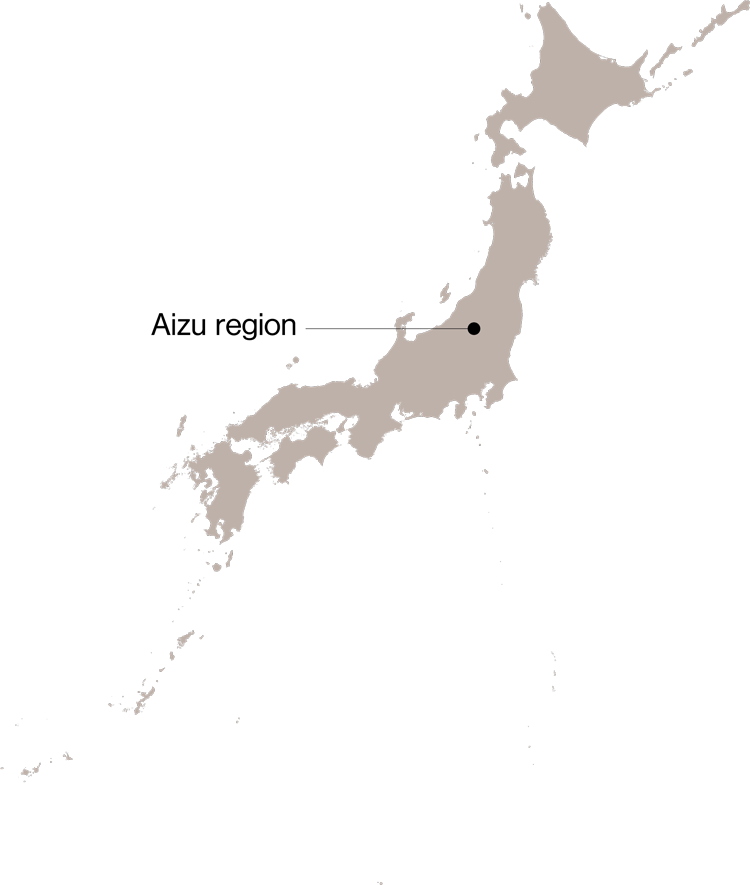

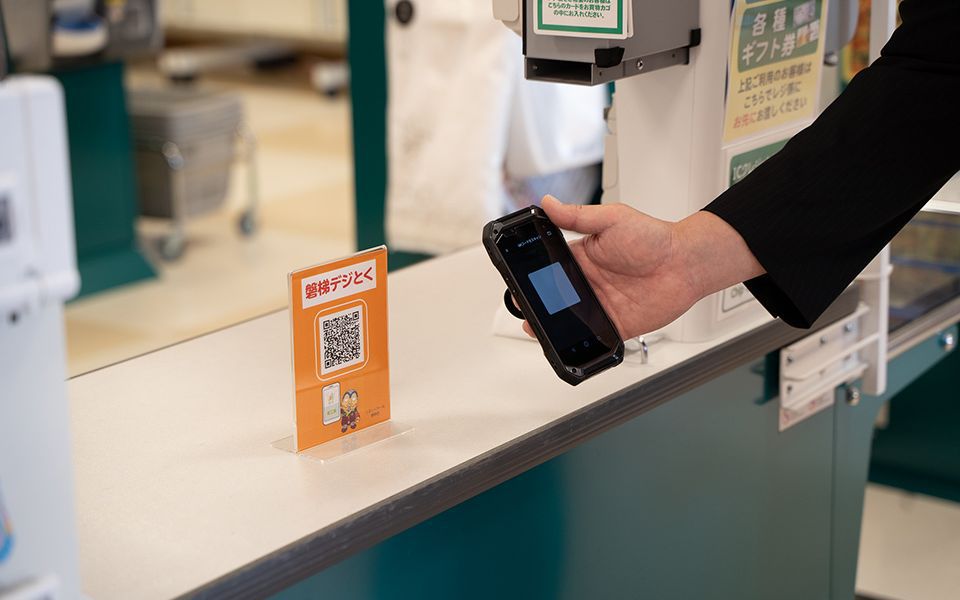
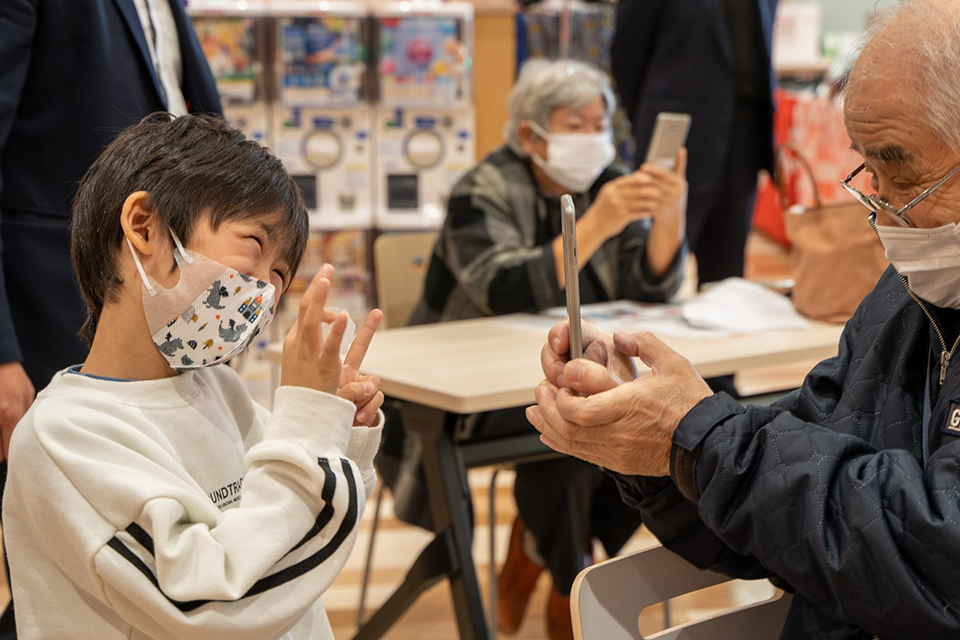
Bandai Town is working on digital transformation such as issuing a digital currency using blockchain technology. It also holds smartphone classes for seniors so that everyone can enjoy the digital life. HIRO /A.COLLECTIONRF/AMANAIMAGES
The Aizu region of Fukushima Prefecture is located about 200 km north of central Tokyo. Blessed with an abundance of nature, including Mt. Bandai and Lake Inawashiro, Aizu is emerging as a region where digital transformation is being incorporated into the very fabric of local government. The need for digital transformation stems from the same challenge being faced by regions throughout Japan: an aging and shrinking population.

SUGAWARA Naotoshi, appointed as Bandai Town’s CDO two years ago, says, “I want to develop the potential of the region through the power of digital technology.”
With a population of just 3,300, Bandai Town was the first local government in the country to appoint, in November 2019, a Chief Digital Officer, or CDO. “We’ve been working to move our systems online, to the cloud, so that anyone, anywhere, can take part in local government administration,” states SUGAWARA Naotoshi, the town’s CDO. “An outflow of human resources has been an issue in the countryside, but with the obstacle of transportation removed, those living outside the town have been able to get involved in matters of management. Where there are people, more ideas are generated, and that attracts even more people. The shortage of human resources can be overcome with digital technology.”
In July 2021, Bandai Town issued its own digital currency using the blockchain platform known as Hyperledger Iroha. Hyperledger Iroha is an industry- standard technology from Japan developed in collaboration with Soramitsu Co., Ltd., a company with a proven track record in blockchain technology around the world, and the University of Aizu, dedicated to computer science and engineering education. The year before, the National Bank of Cambodia chose Hyperledger Iroha when it launched the world’s first central bank digital currency, and the technology is also being considered by the central banks of Laos and Fiji for similar purposes. “Digital currency enables the visualization of local economies through the analysis of recorded data. The challenge is how to circulate this currency within the region,” says Sugawara.
Ever since it pledged a decade ago to become a “smart city,” Aizuwakamatsu, one of the primary cities of the Aizu region, has been promoting the use of ICT. The city has been making innovations specifically aimed at its citizens, having developed a system of telemedicine using tablet devices, for example, as well as a real-time display to show where its snowplows are working, given the area’s particularly heavy snowfall.
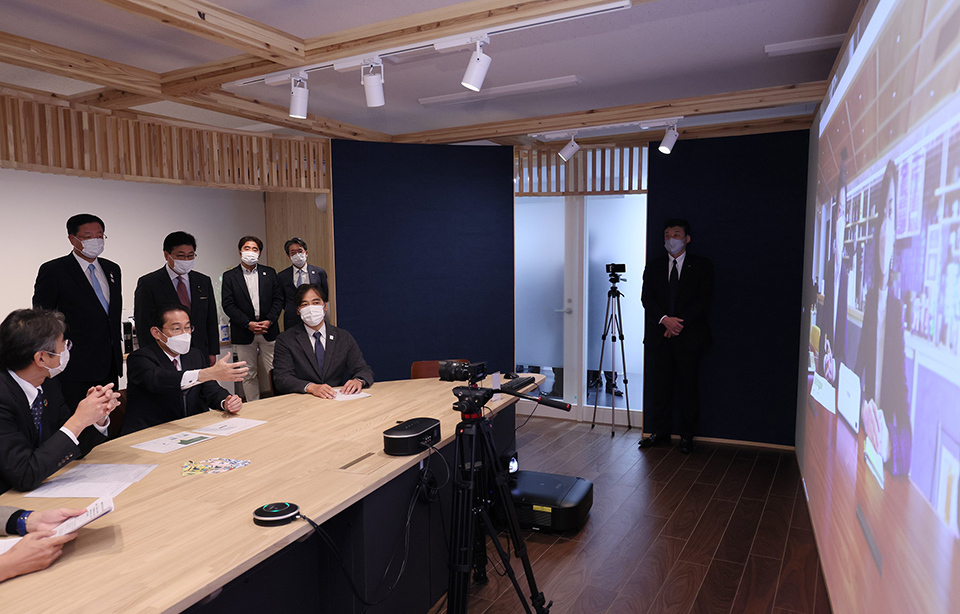
Prime Minister Kishida taking a look at Aizuwakamatsu’s smart city initiative. With the large screens at Smart City AiCT, users can hold meetings online as if in the same room with each other.
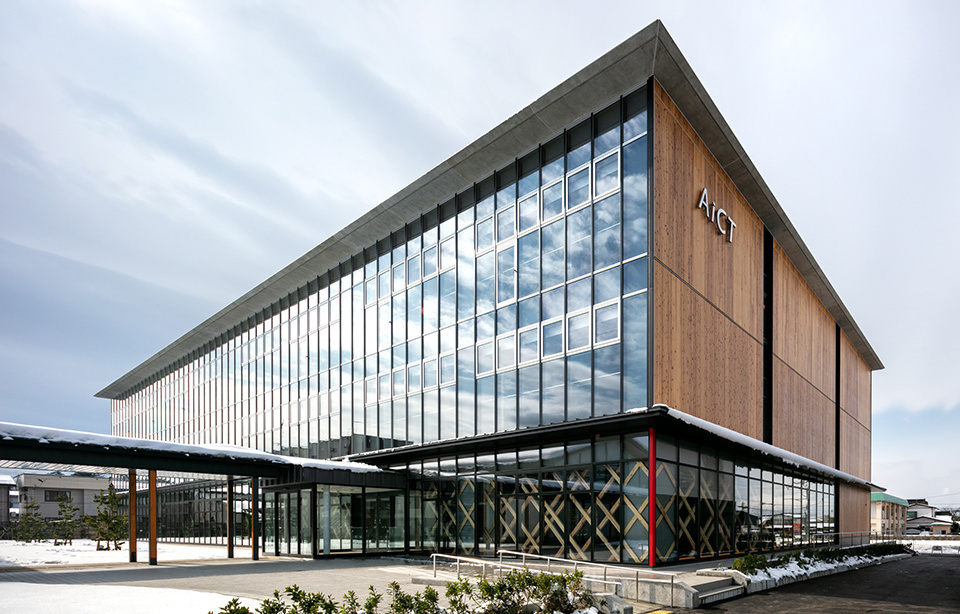
Opened in 2019, Smart City AiCT has helped to create jobs in the region. New innovations are expected to emerge from its open interaction environment.
In 2019 the city opened an ICT office known as Smart City AiCT to attract talent from the greater Tokyo area and create jobs for young people. Thirty- seven companies from Japan and overseas, including NEC, Microsoft, and Accenture, have offices at the open innovation base. With a population of 120,000 and as a hub for industries in the ICT sector, Aizuwakamatsu City is fast becoming a place where forward-looking proof-of-concept trials are being conducted in a wide range of fields full of potential, from new forms of mobility and self-driving robots to the establishment of energy management systems with electric vehicles as storage batteries.
To realize the sustainable society outlined by the Japanese government’s Vision for a Digital Garden City Nation initiative, each region is working on carrying out a digital transformation in its own way, consistent with its needs and scale. Asked about what Bandai Town will be like 10 years from now, Sugawara replies, “I doubt the town will have changed much. Because digital technology is a means of infrastructure, I imagine the town’s residents will be able to continue living the same happy lives in communities that are aided by the power that digital technology provides. That is Bandai Town’s digital transformation.”





























